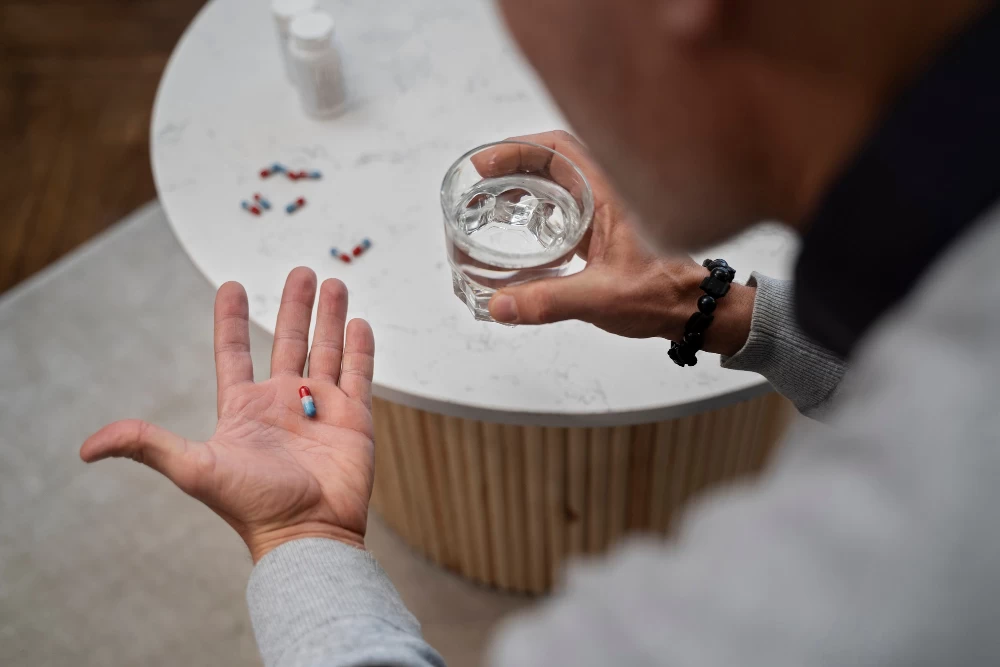
Things to Know About Psychiatric Drug Use During Ramadan
- Things to Know About Psychiatric Drug Use During Ramadan
With the beginning of Ramadan, we began to hear our patients' questions about fasting and drug use. In this article, I wanted to answer the questions of our patients and their relatives who used psychiatric drugs and were diagnosed with psychiatric diseases during Ramadan.
Our clinical practice is for patients taking antidepressant and anxiolytic therapy to shift their medication doses to sahur in the morning, to take their medication after iftar in the evening, and to decide on the medication to be taken by the patient in consultation with their doctor. Another point to be considered here is that some of the drugs with antidepressant and antianxiety effects may have side effects such as decreased secretion and dry mouth, and it should be kept in mind that these side effects may deepen with fasting. In elderly patients, the use of drugs with pronounced anticholinergic side effects may increase confusion while remaining dehydrated, so it may be an alternative to change the drug or shift the dosage of the drug to the evening.
Symptoms such as insomnia, difficulty concentrating, nervousness and tension due to adapting to sahur and iftar times during Ramadan and prolonged fasting periods are normal reactions that we can see in people who do not use psychiatric drugs. However, it should not be forgotten that in some psychiatric diseases such as bipolar affective disorder and schizophrenia, especially insomnia can trigger episodes and exacerbations of the disease. Because even in patients who regularly comply with the treatment of insomnia and stressful life events, it can trigger attack periods and exacerbation of the disease in diseases such as bipolar affective disorder and schizophrenia. Since it would not be appropriate to fast for patients with bipolar affective disorder and schizophrenia who are incapable of assessing the truth, need constant care of their relatives, whose disease is frequently triggered by medication adherence and insomnia, or who of frequent attacks in the past, a physician should be consulted considering the medical condition of the person. For patients diagnosed with bipolar affective disorder, whose disease is in improvement, which we call remission, this decision can be made with appropriate drug treatment arrangements, taking into account the course of their disease and the drugs they use, in line with the recommendation. Another important issue here is the use of drugs such as Lithium, Valproic acid and Carbamazepine. Because the therapeutic doses of these drugs are followed by their blood levels. Therefore, reducing, skipping or cutting drug doses during Ramadan may trigger mania or depressive episodes. Lithium is a drug that is excreted through the kidneys, and during fasting, the body's water balance will be disturbed, so the level of Lithium in the blood may increase due to dehydration. Nausea, vomiting, diarrhea, shivering, fever, changes in consciousness, stiffness-limited movement in the body, epileptic seizures, and arrhythmias may occur as a result of increased blood lithium levels. For this reason, it is important for patients who take mood-stabilizing drugs such as Valproic acid, Lithium and Carbamazepine to consult with their physicians.
It would be appropriate for young adults and adults using medication with the diagnosis of attention deficit and hyperactivity disorder (ADHD), especially to shift long-acting methylphenidate forms to the suhoor meal. When the effect of long-acting drugs expires in combined drug therapy, additional short-acting drugs increase wakefulness after iftar and may delay sleeping time.
The most important health problem that patients with alcohol and substance use disorders may encounter is withdrawal and related symptoms. Sweating, palpitations, hand tremors, especially when patients who use heavy amounts of alcohol for a long time (more than 2 weeks) reduce or cut the amount they use quickly; insomnia; nausea or vomiting; temporary visual, tactile, auditory hallucinations or illusions; psychomotor agitation, anxiety and seizures can be seen.
In addition to all these, it is important for our patients who have additional medical diseases such as diabetes, hypertension, heart and kidney diseases to contact their doctors who follow up.
Happy Ramadan…




